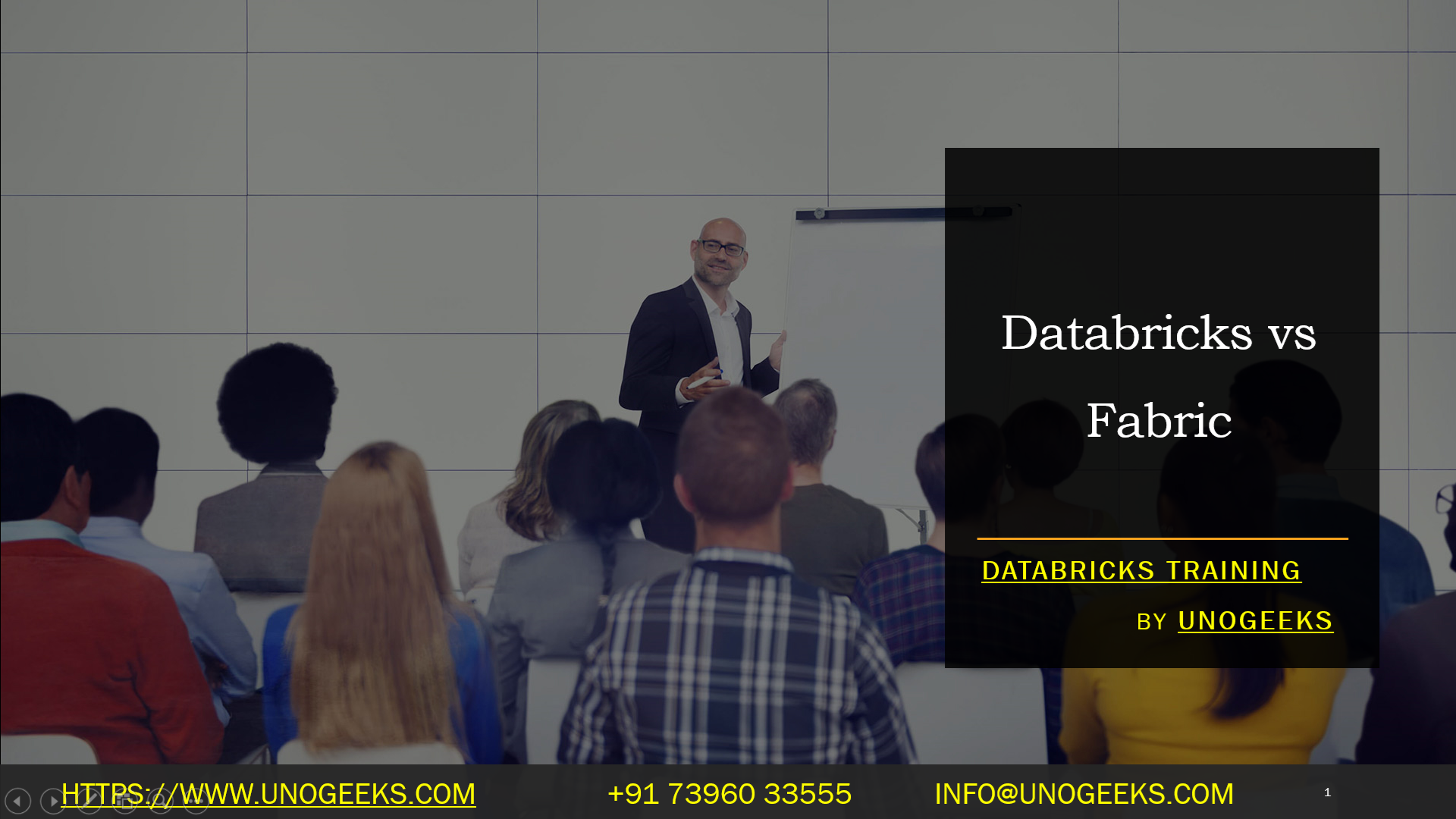Databricks vs Fabric
Databricks vs Fabric
Here’s a breakdown of Databricks vs. Fabric, aimed at helping you choose the best fit for your needs:
Databricks
- Focus: Cloud-agnostic platform centered around Apache Spark for large-scale data processing, analytics, and machine learning.
- Origins: Founded by the original creators of Apache Spark, offering deep Spark expertise.
- Strengths: Optimized Spark performance.
- Excellent collaboration features with notebooks for data scientists, engineers, and analysts.
- Flexible deployment across major cloud providers (AWS, Azure, GCP).
- Extensive support for data science and machine learning libraries.
- Considerations: This can involve more manual setup and infrastructure management.
- Potential complexity for organizations new to Spark.
Microsoft Fabric
- Focus: Unified analytics platform within the Azure ecosystem, built to simplify data engineering, warehousing, and analytics.
- Origins: Microsoft-developed solution designed to integrate with other Azure services tightly.
- Strengths: Seamless integration with Azure services (Synapse, Data Lake Storage, etc.).
- User-friendly interfaces and tools for less technical users.
- The lower learning curve for teams familiar with Microsoft tools.
- Potentially more cost-effective due to a unified billing model.
- Considerations: Primarily focused on the Azure environment, limiting flexibility.
- It may have fewer specialized features for advanced Spark use cases than Databricks.
Key Decision Factors
- Cloud Preference: If you’re heavily invested in the Azure ecosystem, Fabric offers a decisive advantage with native integration. Databricks is preferable if you need a cloud-agnostic solution.
- Technical Expertise: If your team has extensive Spark experience, Databricks provides finer-grained control and optimization potential. Fabric is better suited for teams prioritizing ease of use within Azure.
- Focus of Workloads: For heavy data science and machine learning with complex Spark usage, Databricks usually excels. Fabric is better for general analytics, data warehousing, and streamlined data engineering within Azure.
- Cost: While pricing models differ, Fabric can be more cost-effective in specific Azure-centric scenarios.
General Guidance
- Databricks: Best for Spark experts, cloud flexibility, and advanced machine learning workloads.
- Fabric: Best for Azure-centric users, ease-of-use, and streamlined data engineering.
It’s important to note that both platforms are evolving rapidly. Experimentation and evaluating your specific needs are crucial for the most informed decision.
Databricks Training Demo Day 1 Video:
Conclusion:
Unogeeks is the No.1 IT Training Institute for Databricks Training. Anyone Disagree? Please drop in a comment
You can check out our other latest blogs on Databricks Training here – Databricks Blogs
Please check out our Best In Class Databricks Training Details here – Databricks Training
Follow & Connect with us:
———————————-
For Training inquiries:
Call/Whatsapp: +91 73960 33555
Mail us at: info@unogeeks.com
Our Website ➜ https://unogeeks.com
Follow us:
Instagram: https://www.instagram.com/unogeeks
Facebook:https://www.facebook.com/UnogeeksSoftwareTrainingInstitute
Twitter: https://twitter.com/unogeeks
